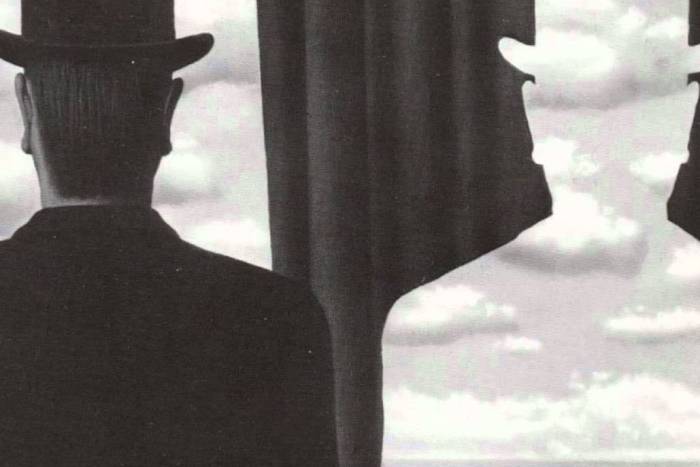A Fascinating Mystery of Sound: The 52-Hz Whale
This marine giant moves between fantasy and reality in the search for someone to talk to.
The ocean and outer space are territories that are almost equally unexplored. We have better maps of Mars than we do of the mountains and volcanoes in certain parts of the depths of the ocean. The south seas, for example, remain largely unexplored. NASA has a much bigger budget that ocean exploration organizations and the majority of discoveries in the depths of the ocean have taken place by accident.
Even animals that we believe we are more familiar with, such as whales, are creatures that retain many mysteries for humans. In his fascinating book Leviathan, or The Whale, Philip Hoare explores how humans have related to these creatures, from the myth of Leviathan that appears in the Old Testament, to the mythical whale of Moby Dick and whale shows in theme parks. Hoare makes it clear how much of their behavior remains enigmatic. We still don’t know why they jump out of the water and what it is they do when they submerge into the darkness of the ocean. He also writes that there are species of ziphiidae, or beaked whales, that we have never seen and we only know of their existence from skulls found on beaches.
Hoare also writes about 52-Hz whale. In 1992, the US Navy detected a sound, with hydrophones that it uses to trace enemy submarines, that scientists determined was the call of a whale. Whales recognize their own species and family by their voice. The similarity between sounds allows them to track each other down and meet with their fellow specimens in the immensity of the ocean. However, the deep sound that this whale makes, close to that made by a tuba, was not like the call of any other known whale. Since then, scientists have continued to pick up the sounds of the whale that no other creature responds to.
Various theories have been put forward. Some say that it is a deformed whale, others that it is perhaps a hybrid, resembling a cross between a blue whale and another type. But the most likely explanation is that it is a healthy whale, as it has survived for so long. It is like the last speaker of an extinct language. The more we discover about the capacity for affection of certain animals, the more we tend to humanize them. It is difficult not to be moved by this whale, which has spent more than 12 years swimming the oceans and looking for someone to talk to.
Chekov has a story called Sorrow about a coachman in the Russian winter who desperately seeks someone to tell the story of his dead son to. Nobody appears to be willing to listen and in the end the only person who will lend him their ears, and which turns out to be the most human of all, is his horse. The sadness in the story is not due to the coachman’s tough circumstances, but the impossibility of being able to share them and find somebody’s empathy. And it also proves that empathy sometimes comes from where you least expect it.
For centuries it has been a recurring human fantasy to talk to animals. Mexican artist Ariel Gúzik has submarine projects, fantastical machines that pursue the impossible aim of talking to whales. If we could converse with the 52-Hz whale, what would it tell us? What epic or solitary stories from the depths of ocean? We can only imagine and, in the meantime, keep listening.
Related Articles
Pictorial spiritism (a woman's drawings guided by a spirit)
There are numerous examples in the history of self-taught artists which suggest an interrogation of that which we take for granted within the universe of art. Such was the case with figures like
Astounding fairytale illustrations from Japan
Fairy tales tribal stories— are more than childish tales. Such fictions, the characters of which inhabit our earliest memories, aren’t just literary works with an aesthetic and pleasant purpose. They
A cinematic poem and an ode to water: its rhythms, shapes and textures
Here lies One Whose Name was writ in Water. - John Keats Without water the equation of life, at least life as we know it, would be impossible. A growing hypothesis holds that water, including the
Watch beauty unfold through science in this "ode to a flower" (video)
The study of the microscopic is one of the richest, most aesthetic methods of understanding the world. Lucky is the scientist who, upon seeing something beautiful, is able to see all of the tiny
To invent those we love or to see them as they are? Love in two of the movies' favorite scenes
So much has been said already, of “love” that it’s difficult to add anything, much less something new. It’s possible, though, perhaps because even if you try to pass through the sieve of all our
This app allows you to find and preserve ancient typographies
Most people, even those who are far removed from the world of design, are familiar with some type of typography and its ability to transform any text, help out dyslexics or stretch an eight page paper
The secrets of the mind-body connection
For decades medical research has recognized the existence of the placebo effect — in which the assumption that a medication will help produces actual physical improvements. In addition to this, a
The sea as infinite laboratory
Much of our thinking on the shape of the world and the universe derives from the way scientists and artists have approached these topics over time. Our fascination with the mysteries of the
Sharing and collaborating - natural movements of the creative being
We might sometimes think that artistic or creative activity is, in essence, individualistic. The Genesis of Judeo-Christian tradition portrays a God whose decision to create the world is as vehement
John Malkovich becomes David Lynch (and other characters)
John Malkovich and David Lynch are, respectively, the actor and film director who’ve implicitly or explicitly addressed the issues of identity and its porous barriers through numerous projects. Now










